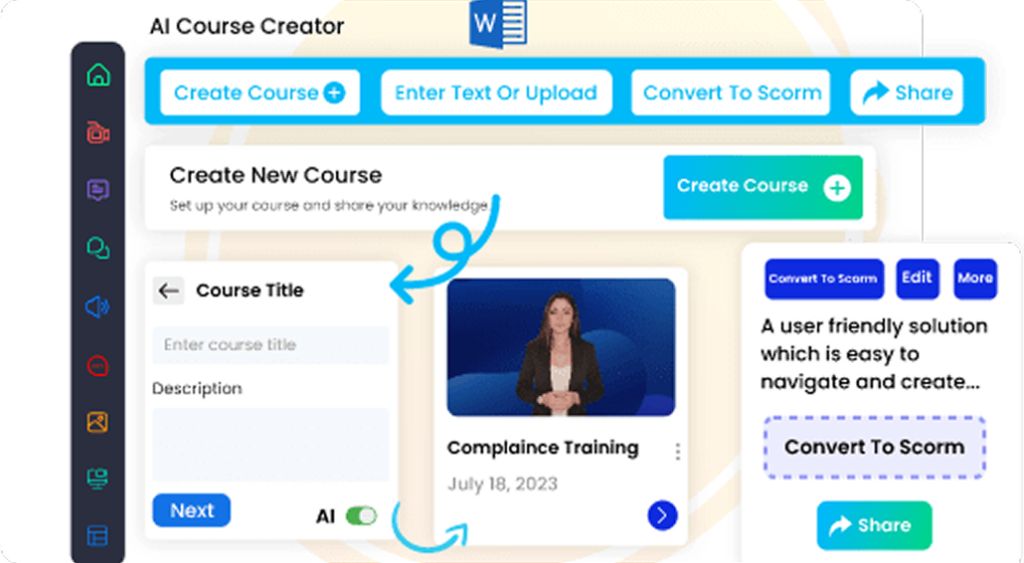Understanding the Significance of Strategic Account Management in Sustainable Business Growth
Strategic account management (SAM) is a crucial approach in modern business, emphasizing long-term relationships with key clients. Unlike transactional sales—which focus on individual deals—SAM aims to understand and align with the strategic goals of high-value customers to promote mutual growth. This proactive, consultative process fosters trust and loyalty, positioning organizations as essential partners rather than just suppliers.
Beyond client retention, SAM acts as a driving force for steady revenue growth and competitive differentiation. By leveraging data analytics and personalized engagement, businesses can identify emerging needs, tailor solutions, and create added value. Additionally, SAM encourages collaboration across departments—sales, marketing, support, and product development—to serve strategic accounts cohesively.
In today’s fiercely competitive landscape, building lasting client relationships is vital. Strong connections lead to customer advocacy, reduce churn, and open doors for upselling and cross-selling. Furthermore, Strategic Account Management training enables companies to anticipate future demands, foster innovation, and secure long-term profitability. Organizations prioritizing SAM position themselves for sustained success, using deep client insights to drive innovation and unlock new growth opportunities.
Essential Components of Effective Strategic Account Management
For businesses aiming to deepen client ties, foster long-term growth, and secure a competitive edge, effective strategic account management (SAM) hinges on three core components: customer insights, relationship development, and value creation. These interconnected pillars form the foundation for delivering sustained value and building successful partnerships.
Understanding Customer Insights: The Cornerstone of Strategic Engagement
Customer insights are fundamental to effective account management. They involve gathering and analyzing data related to client needs, preferences, organizational structure, decision-making processes, and industry challenges. Using advanced analytics, CRM tools, and direct interactions, account managers develop a nuanced understanding of their clients’ businesses.
Deep insights enable proactive anticipation of client needs, identification of new opportunities, and customization of solutions aligned with strategic objectives. Studies, such as a 2022 report by McKinsey & Company, indicate that companies leveraging detailed customer insights experience a 20% higher retention rate and greater cross-selling potential.
Integrating insights across departments enhances strategy consistency and fosters trust, positioning account managers as trusted advisors rather than mere service providers.
Relationship Development: Building Trust and Mutual Value
Building robust relationships is essential for fostering trust, loyalty, and long-term collaboration. It involves deliberate efforts to establish personal and professional connections through consistent communication, transparency, and delivering on commitments.
Key tactics include regular strategic reviews, personalized interactions, and active listening to client feedback. For example, Harvard Business Review (2019) notes that clients are 60% more likely to commit long-term when they perceive genuine relationship investment from their account teams.
Understanding the client’s organizational culture and decision-making hierarchy helps tailor communication and demonstrate sincere interest in their success, thereby strengthening rapport and problem-solving capacity.
Value Creation: Delivering Strategic and Measurable Benefits
At its core, value creation in SAM involves delivering solutions that benefit both the client and the provider. This means customizing offerings to solve specific challenges and seize opportunities, reinforcing the strategic importance of the partnership.
Value extends beyond product features to encompass process improvements, innovation, and support aligned with the client’s broader goals. Forrester Research (2021) highlights that clients favor vendors who deliver measurable value—such as cost reductions, increased revenues, or operational efficiencies.
Effective account managers conduct regular value assessments, communicate tangible impacts through metrics and success stories, and adapt offerings to evolving client needs—solidifying the strategic partnership.
Developing Effective Account Strategies: Actionable Guidance for Success
Creating tailored account strategies is vital for long-term growth and fostering deep client relationships. Since one-size-fits-all approaches are ineffective, successful strategies require understanding each client’s unique needs, market positioning, and ambitions. Here’s a step-by-step guide on crafting personalized account plans, setting clear objectives, and optimizing through data analytics.
1. Understand Your Clients Deeply
Start with comprehensive research into your client’s industry trends, competitive environment, financial health, and strategic priorities. Conduct interviews or surveys to identify their pain points, growth drivers, and expectations. Utilize CRM systems and market intelligence tools to gather valuable insights into their behavior and preferences.
2. Set SMART Objectives
Define specific, measurable, attainable, relevant, and time-bound (SMART) goals aligned with your client’s aims and your organizational capabilities. For instance, target a 15% increase in revenue within a quarter or a 10% boost in retention over six months. Clear objectives facilitate targeted efforts and performance tracking.
3. Leverage Data Analytics for Strategic Planning
Use data analytics to guide decision-making. Analyze historical transactions, engagement metrics, and industry benchmarks to detect patterns or forecast trends. Visualization tools like dashboards can reveal opportunities for upselling, cross-selling, and risk reduction—grounding your strategies in data rather than guesswork.
4. Develop Customized Action Plans
Based on insights, create detailed action plans with specific activities, responsible teams, timelines, and success criteria. Prioritize initiatives with high ROI potential and align them with strategic objectives. Regularly review and update these plans as new data emerges to maintain agility.
5. Monitor, Measure, and Optimize
Track key performance indicators such as account growth, satisfaction scores, and engagement levels. Utilize analytics to evaluate progress and implement corrective actions promptly. Regular client reviews foster transparency and collaborative problem-solving, ensuring strategies remain aligned with changing needs.
Learning Built Around Your Goals.
Discover how our courses can align with your training goals and drive real results.
Best Practices for Building Trust and Engaging with Key Accounts to Foster Loyalty and Long-Term Success
Establishing strong relationships with key accounts is essential for sustained growth and competitive advantage. Trust, transparent communication, and active engagement are foundational elements that ensure loyalty, encourage collaboration, and drive mutual success.
Building Trust with Key Accounts
Trust is the cornerstone of enduring business relationships, built through consistent, reliable, and transparent interactions.
- Demonstrate Expertise and Reliability: Show deep industry knowledge and fulfill commitments consistently, positioning yourself as a trusted advisor.
- Transparent Communication: Be honest during challenges, updates, or delays to build credibility.
- Deliver Value Beyond Expectations: Surpass expectations with quality, personalized services, and proactive support. Recognize milestones to strengthen bonds.
Maintaining Open Communication
Open channels foster understanding and help avoid misunderstandings that could harm relationships.
- Regular Interactions: Schedule periodic reviews and check-ins via multiple channels to discuss performance and explore opportunities.
- Active Listening and Empathy: Pay attention to client feedback and demonstrate genuine concern for their needs.
- Transparent Sharing: Keep clients informed about updates, trends, and news affecting their operations.
Engaging with Key Accounts to Promote Loyalty
Active engagement involves ongoing personalized efforts to deepen trust and collaboration.
- Personalize Interactions: Tailor communications and solutions to fit each client’s specific context.
- Collaborative Problem-Solving: Involve clients in developing solutions for complex challenges to strengthen commitment.
- Recognize and Reward Loyalty: Use loyalty programs and personalized recognition to affirm ongoing partnership and foster emotional bonds.
Long-Term Strategies for Success
Sustaining effective practices involves cultivating a customer-centric culture, leveraging technology like CRM systems, and continuously seeking feedback to refine approaches. These efforts ensure ongoing relationship growth, ensuring clients become genuine partners that fuel mutual innovation and success.
How CogniSpark AI Elevates Strategic Account Management Training
Strategic Account Management (SAM) is key to nurturing high-value client relationships and driving long-term business growth. Strategic Account Management training equips employees with the skills to develop trust-based partnerships, identify upsell opportunities, and deliver consistent value to key accounts. With CogniSpark AI, this training becomes more impactful and future-ready.
CogniSpark’s intelligent AI Tutor provides real-time coaching on core SAM principles—such as stakeholder mapping, solution selling, and account planning. Through interactive simulations and scenario-based learning, employees sharpen their strategic thinking, communication, and negotiation skills in a risk-free environment.
The platform’s intuitive authoring tool allows organizations to quickly create and customize training modules that reflect specific client industries, deal sizes, and business challenges. Whether your teams manage healthcare accounts or enterprise tech clients, the content can be adapted to meet the strategic nuances of each.
With LMS integration and advanced progress tracking, CogniSpark ensures learning is consistent, measurable, and aligned with key performance goals. The result? A confident, consultative salesforce capable of building lasting partnerships and expanding key accounts.
CogniSpark AI transforms strategic account management training into a personalized, scalable, and results-driven experience—empowering teams to turn client relationships into growth engines.
Conclusion
In conclusion, mastering effective account management combines strategic planning, active communication, and data-driven insights. Implementing best practices—such as building client trust, leveraging analytics, and maintaining proactive engagement—can significantly elevate your success. Continually adapting to client needs and staying informed through training and technology will position you as a trusted partner, driving sustainable growth.
Start applying these approaches today by scheduling regular client check-ins, personalizing solutions with customer data, and staying updated on industry trends via webinars and resources. Consistent effort and a proactive mindset are key to transforming your account management outcomes.
Access 100+ fully editable, SCORM-compatible courses featuring an integrated AI Tutor and an in-built authoring tool. Seamlessly compatible with any LMS, these courses are designed to elevate your training programs.
Explore Our eLearning Course Catalog






















